.webp)
Texas Custom Prefab ADU Guide: Costs & Builders
Table of Contents
Custom prefab ADUs (Accessory Dwelling Units) are transforming how homeowners add space, generate rental income, or create multi-generational living solutions on their properties. Combining the efficiency of prefab construction with the flexibility of custom design, these small homes offer an appealing balance of speed, cost control, and personalization—perfect for the diverse housing needs of Texas residents.
In this guide, we'll break down everything you need to know about custom prefab ADUs, how they differ from standard prefab custom homes, the process of working with custom ADU builders, and key considerations to keep in mind before you start.
What Is a Custom Prefab ADU?
A custom prefab ADU is a small, secondary housing unit built off-site in a factory and tailored to the homeowner's design preferences, site conditions, and lifestyle needs. These structures are often used as a backyard ADU, offering added living space without the need for full-scale home renovations.
Unlike pre-designed ADUs that come in standard models, a custom built ADU allows for more control over:
- Floor plans and square footage
- Interior finishes and fixtures
- Exterior styles and materials
- Energy efficiency upgrades
- Layout adjustments for site-specific challenges
This hybrid approach makes it faster and more cost-effective than fully site-built custom ADUs while still giving you design freedom.
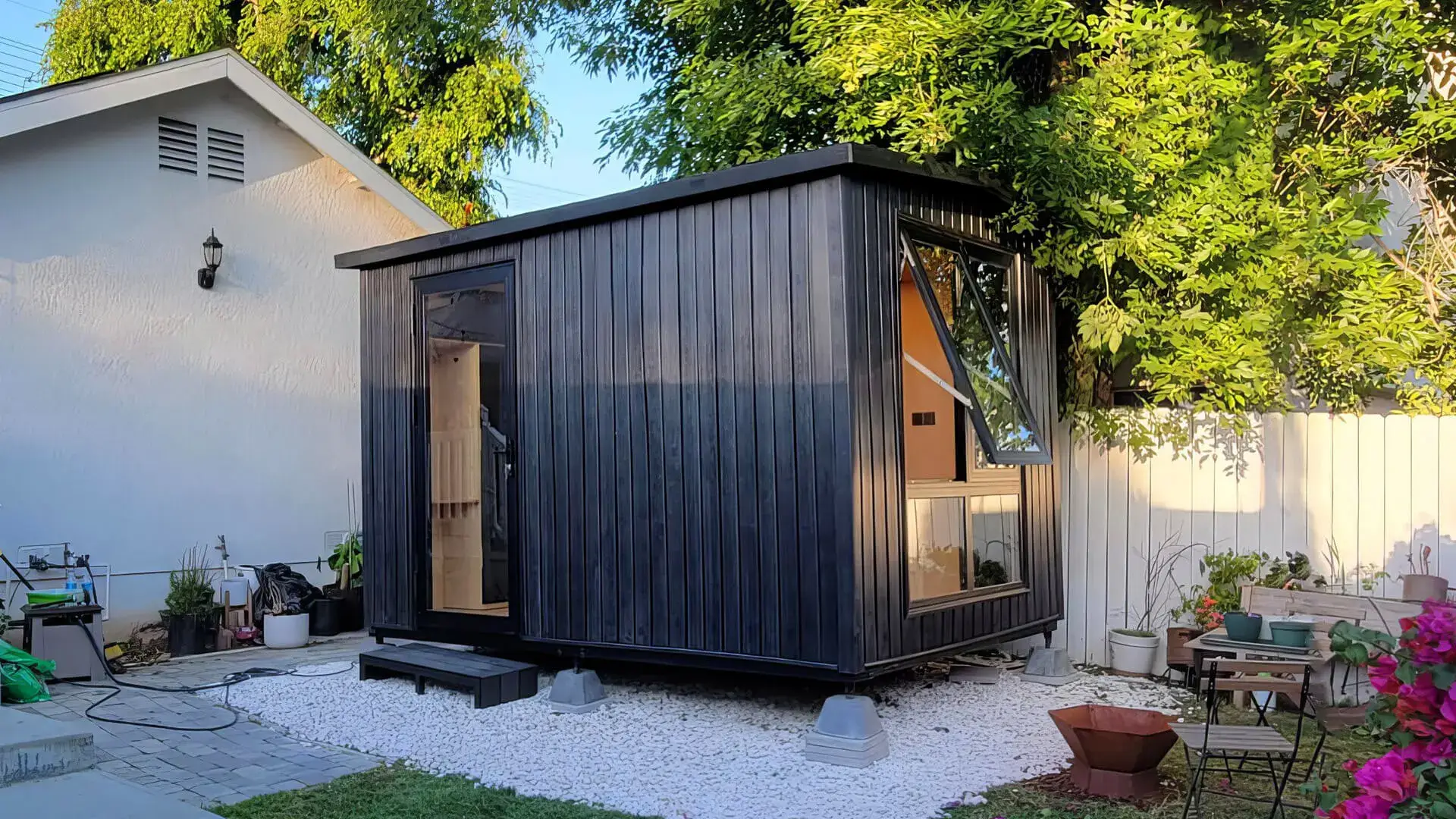
Custom Prefab ADU vs. Prefab Custom Home
Feature | Custom Prefab ADU | Prefab Custom Home |
Purpose | Secondary dwelling on existing property (e.g., rental unit, guest house, in-law suite) | Primary residence replacing or adding to existing structures |
Size Range | Typically 400–1,200 sq ft | Varies widely, often 1,200+ sq ft |
Placement | Backyard, side yard, or as an addition to main home | Full lot build or replacement |
Use Case | Adds space for rentals, home offices, guest quarters, or aging-in-place suites | Main family residence or large-scale custom home |
Customization Level | High, with flexible floor plans, materials, and finishes | Fully custom from the ground up |
Construction Method | Prefabricated in factory, installed on-site | Prefabricated in factory, installed on-site |
Target Homeowners | Homeowners wanting to add living space or rental income on their current lot | Homeowners seeking a fully customized new primary home |
Benefits of Custom Prefab ADUs
1. Faster Build Time
Factory construction runs parallel to site preparation, cutting total project time by 30–50% compared to site-built ADUs.
Personalization Without the Headaches
Work with custom ADU builders to adjust floor plans, materials, and features without starting from scratch. Whether you're working with a floor plan 8x8 office layout, designing a floor plan 10x12 office layout, or planning compact ADUs like adu floor plans 200 sq ft or 150 sq ft studio floor plan, there’s flexibility to make the layout fit your lifestyle.
You’ll also have the freedom to select materials based on performance and appearance. For exterior durability, explore options like the best material for outdoor shed or a complete tiny house materials list.
If you're focused on durability underfoot or overhead, consider shed floor material and the best material for shed roof.
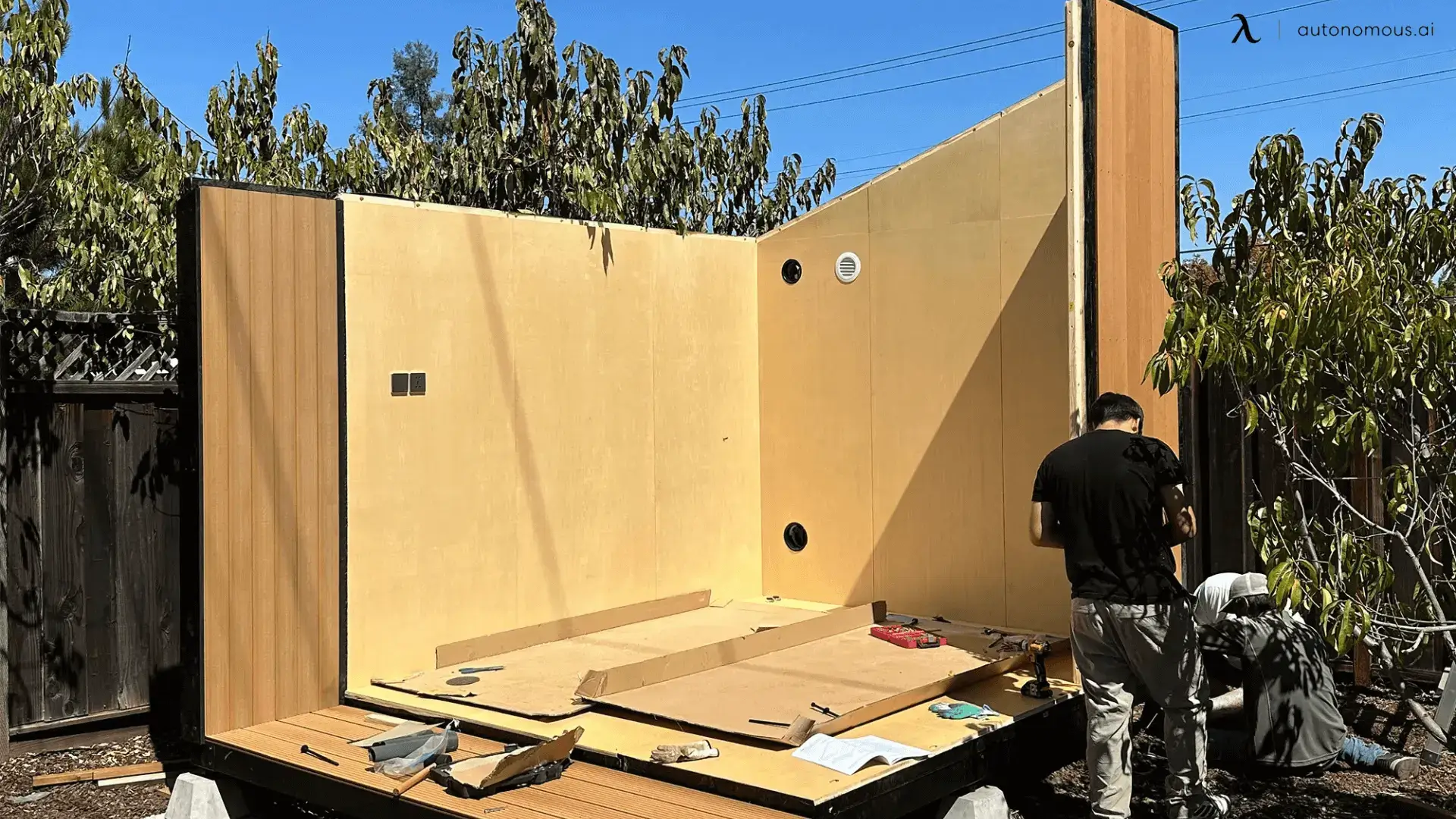
2. Cost Predictability
Prefab models typically come with fixed pricing for the core structure, while upgrades are transparent and easier to budget. This makes planning easier than with traditional builds, where unexpected delays and material changes can drive up costs.
If you're comparing options, it helps to understand average prefab ADU cost, especially in regions where regulations and site prep may affect pricing. Some homeowners also consider alternatives like shipping container home cost or ask how much is a tiny home to see what best fits their budget and use case.
3. Sustainable & Efficient
Many ADU custom homes can be designed with solar panels, high-performance insulation, and energy-efficient windows, making them more sustainable and cost-effective in the long run. Homeowners interested in clean energy solutions often explore solar power for shed setups to reduce grid dependence and lower utility bills.
Getting power to your unit is key—whether you're building an ADU or a flex space—so understanding how to run electric to a shed is a must. You can also explore examples like a she shed with electricity or browse office sheds with electricity to see how others are powering their backyard structures.
Proper insulation is just as important, especially for year-round comfort. If you're wondering where to start, this guide on how to insulate a shed can help you choose the right materials and approach for your space.
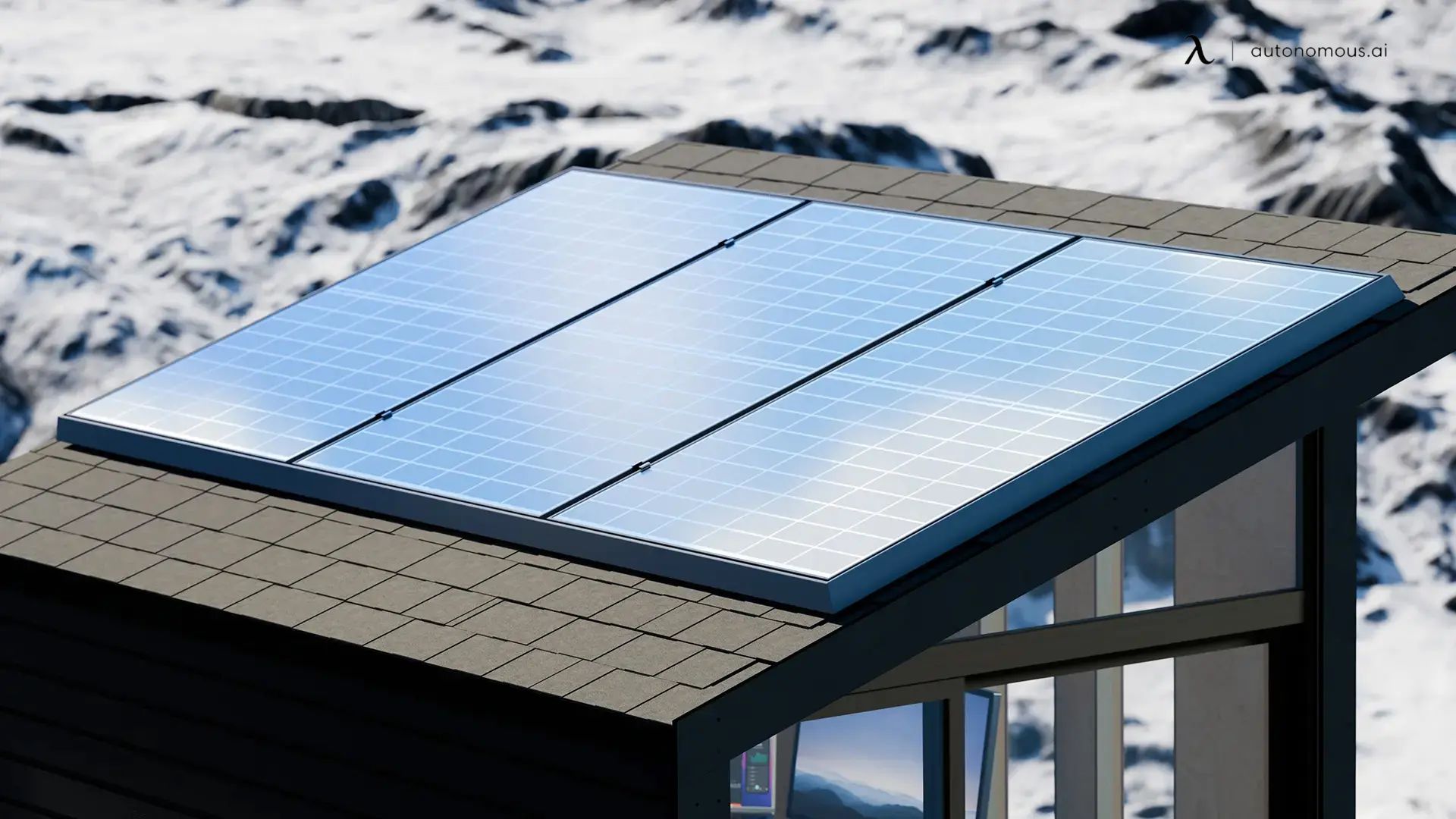
4. Simplified Permitting
Many prefab companies handle or assist with local permits, zoning, and utility connections—removing one of the biggest hurdles in adding an ADU to your property. If you're unsure where to start, this guide on how to get an ADU permit walks you through the process step by step, covering regional differences and common roadblocks.
In some areas, particularly for very small backyard units, you may be able to build a permit-free structure—often used as an office, studio, or flex space. While these aren't classified as legal dwelling units, they can still offer value if built within local limits. Learn more about the pros, cons, and regulations surrounding permit-free ADU alternatives to help determine what's right for your space.
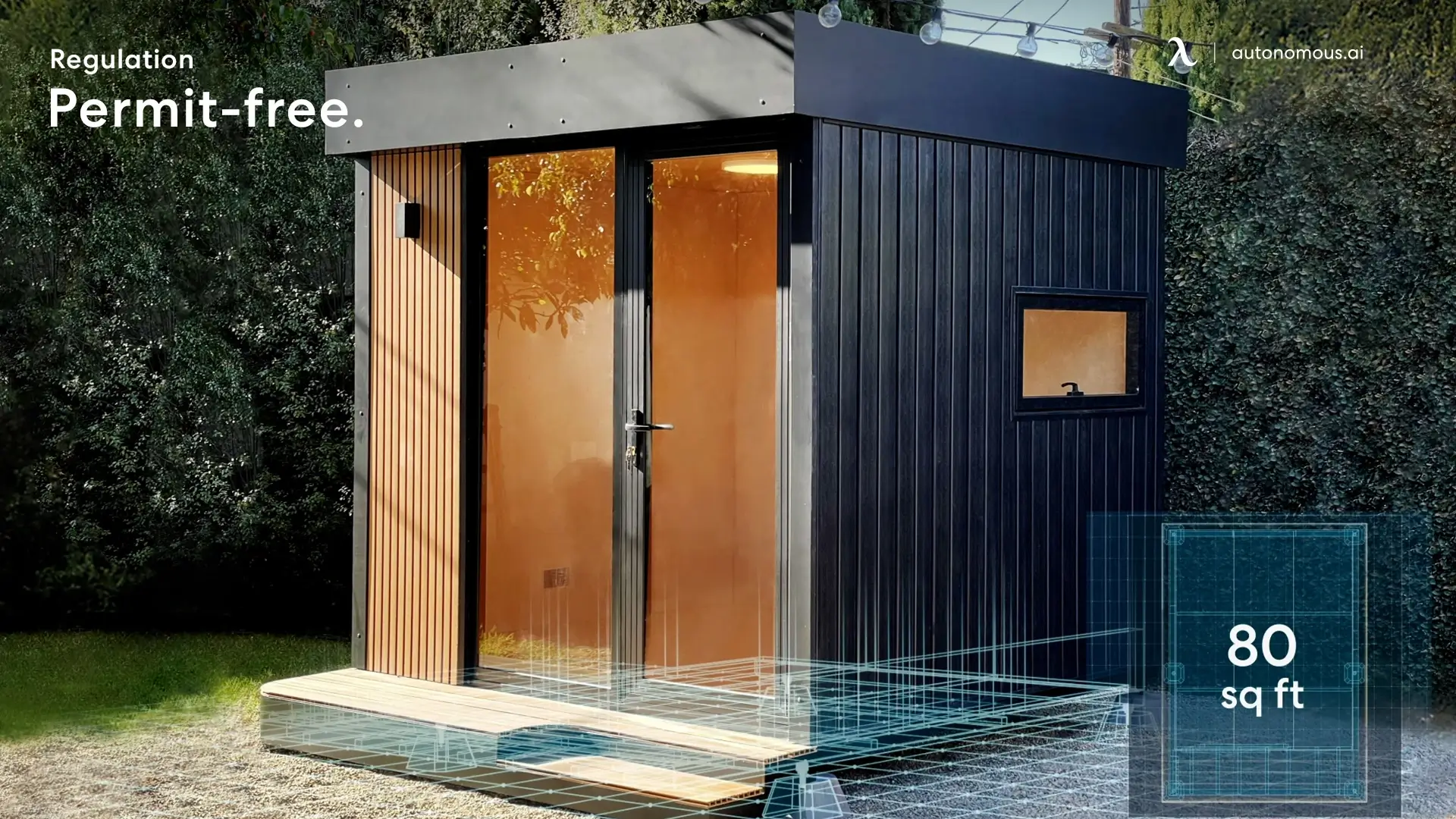
Key Considerations Before Building
1. Local Regulations
ADU rules vary widely by city and county. For example, Austin allows more flexible ADU development under its Affordability Unlocked Program, while some counties have stricter zoning or building requirements. Always confirm your local ordinances, including:
- Setbacks and lot size limits
- Maximum unit size (many cities cap ADUs at 1,200 sq ft)
- Height and design restrictions
- Parking requirements, which may differ in urban vs. rural areas
2. Site Challenges
Texas properties come with their own set of challenges—from clay-heavy soils prone to shifting, to tight urban lots in Austin and Dallas, or rural sites with long utility runs. Factoring these into your site prep is key to avoiding surprises.
3. Customization Budget
Expect custom prefab ADUs to range from $250–$500 per sq ft, depending on design, finishes, site complexity, and local permit fees. Costs may also vary depending on the region's construction demand.
4. Builder Selection
Work with experienced custom ADU builders familiar with permitting, weather conditions, and architectural styles. Choosing builders who know Texas-specific challenges—like extreme heat or wind codes—will save you headaches down the line.
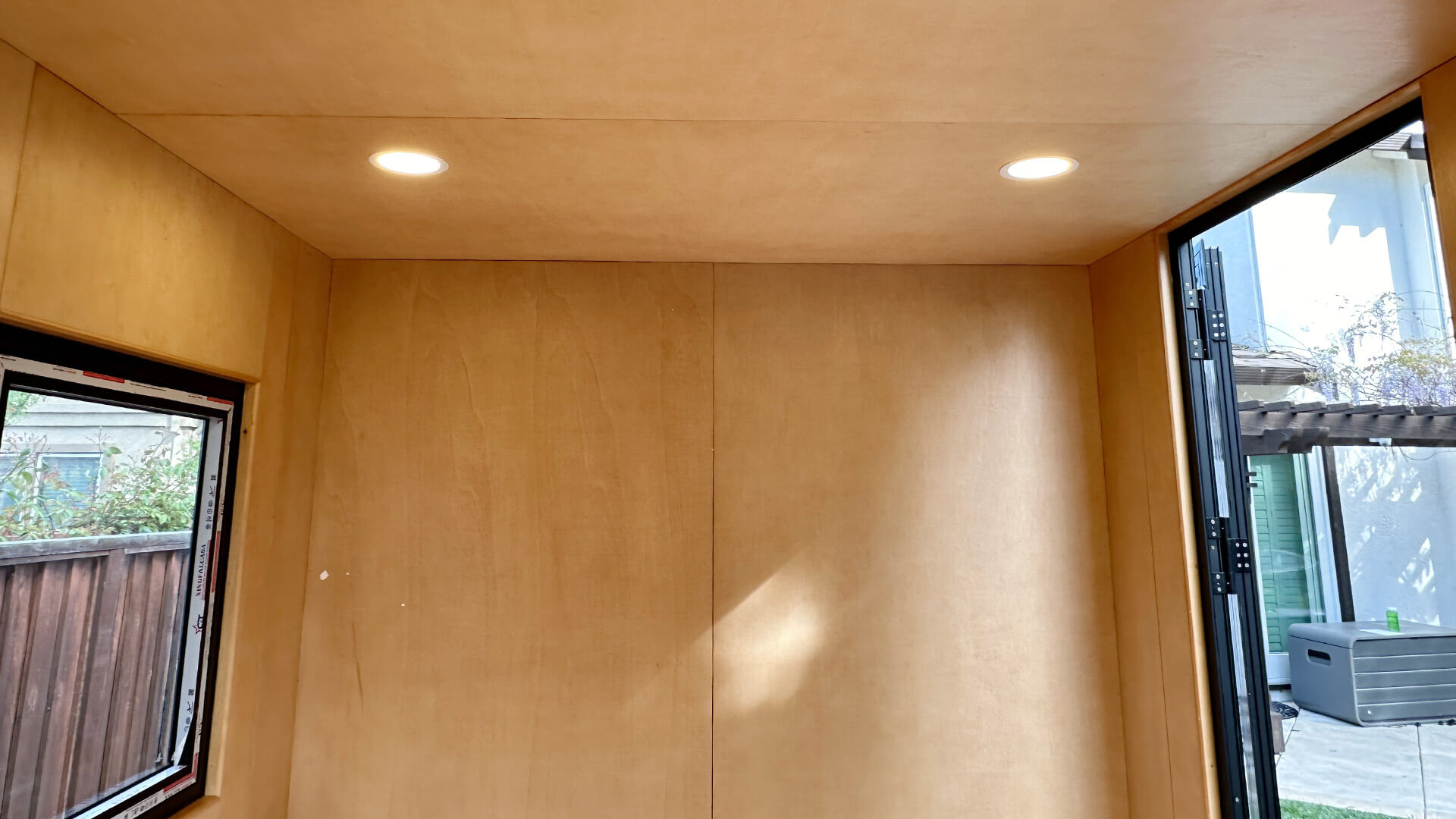
Popular Custom ADU Builders & Companies
Choosing the right builder is key when planning a custom prefab ADU. While several national brands operate across the country, Texas also has emerging builders that specialize in prefab and modular ADUs tailored for the state's climate and local regulations.
Backyard Workroom, based in Texas, focuses on modern, backyard prefab ADUs with customization options for offices, studios, and guest homes. Their process is streamlined for homeowners and includes local permitting support—making them a popular choice for anyone building a backyard office in Texas or looking to add functional space without a full renovation.
Studio Shed serves Texas with sleek, minimal prefab ADUs that can be customized in size, finish, and layout. Their models are popular in Texas cities for home offices, rentals, and flexible living spaces.
Mighty Buildings, while California-based, offers 3D-printed prefab ADUs that can be shipped to Texas, providing an innovative approach with high-performance materials suited for the state's weather extremes.
Kanga Room Systems, headquartered in Waco, Texas, offers custom prefab cabins and ADUs, with styles ranging from traditional to modern farmhouse. Their Texas roots ensure designs that suit local aesthetics and conditions, making them a trusted option for homeowners exploring prefab cabins in Texas as flexible living or working spaces.
Plant Prefab and Connect Homes also ship to Texas, offering sustainable, modern prefab homes and ADUs for homeowners seeking premium design and energy efficiency. They're part of a growing wave of Texas tiny home builders reshaping how residents approach compact, stylish living spaces across the state.
These builders offer a mix of design flexibility, permitting support, and climate-aware construction to simplify your custom prefab ADU project.
The Process: How Custom ADU Builders Work
- Site Assessment
Evaluating your lot, setbacks, access, utilities, and ADU regulations, which can vary by city (Austin, Dallas, Houston) and county.
- Design & Customization
Adjusting pre-engineered models or starting with modular shells and tailoring them to your needs. In Texas, this often includes adding features for heat resilience, outdoor living spaces, and energy efficiency. Homeowners can explore creative ADU design ideas that suit their lifestyle or take inspiration from curated ADU interior design ideas to make small spaces feel open, functional, and beautifully finished.
- Permitting Support
Submitting plans and handling approvals, which in Texas can differ widely depending on city or county requirements. Cities like Austin have more streamlined ADU permits, while rural areas may have different zoning considerations.
- Fabrication Off-Site
Building the ADU in a controlled factory environment—many companies serving homeowners use regional manufacturing hubs to minimize shipping time and costs.
- Delivery & Installation
Transporting and craning the unit onto your property, followed by site finish work like hookups and landscaping. Texas-specific considerations include soil conditions, driveway access, and ensuring the unit meets local building codes for wind and heat tolerance.
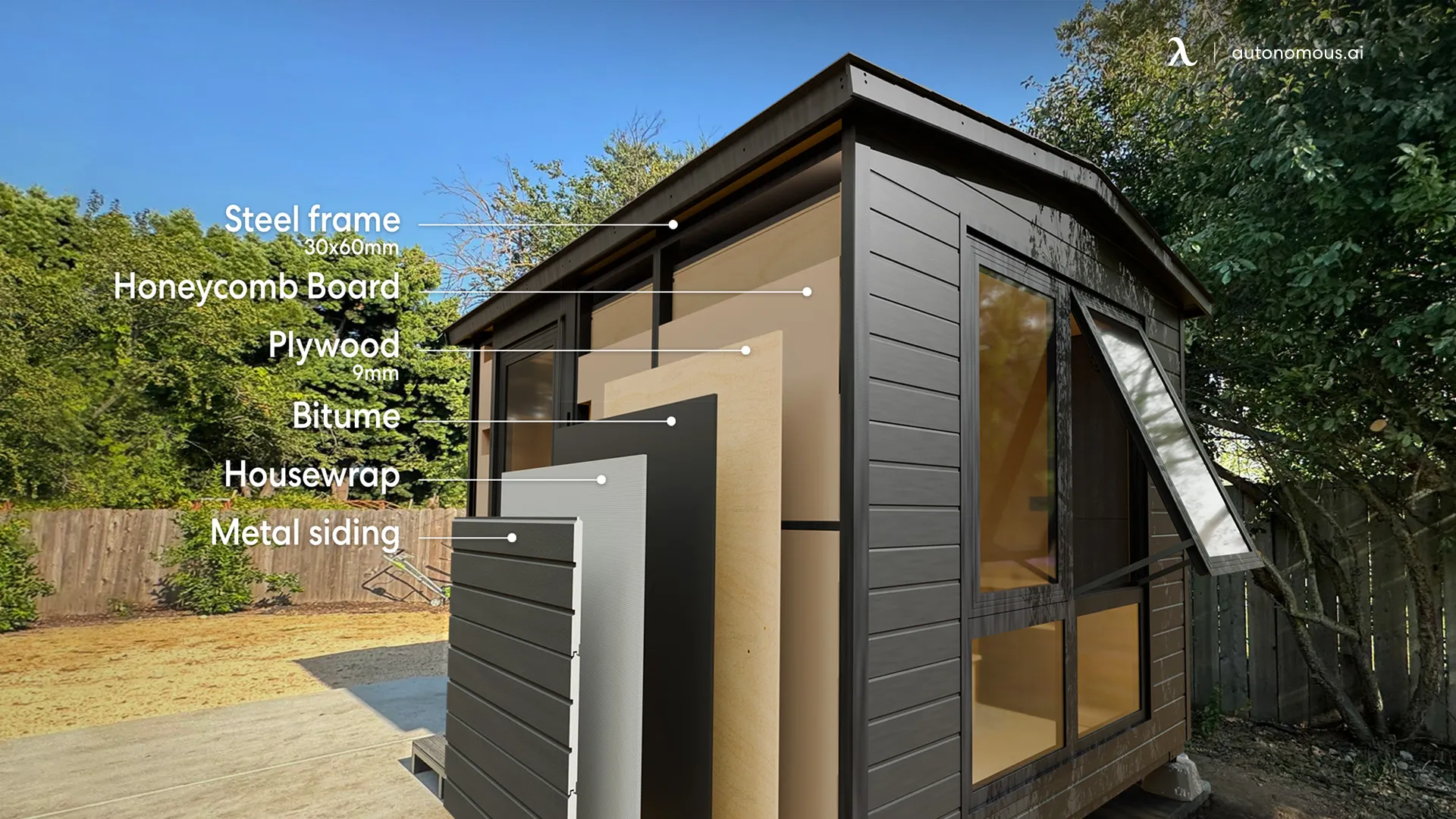
Custom Prefab ADU Costs: Breakdown
Item | Estimated Cost |
Custom Prefab ADU Shell | $100,000 - $300,000 |
Site Work & Utilities | $20,000 - $80,000 |
Permitting & Fees | $5,000 - $20,000 |
Custom Upgrades & Features | $10,000 - $100,000+ |
Note: Costs can vary significantly based on your city or county regulations, site accessibility, soil conditions, and builder selection. In areas like Austin or Dallas, fees and site prep might lean higher, while rural Texas properties may face added utility connection costs due to longer distances or septic system installations.
Is a Custom Prefab ADU Right for You?
If you want the speed and efficiency of prefab but need a tailored ADU that reflects your style, needs, and site conditions, a custom built ADU is a smart choice—especially in Texas, where backyard living and multi-use spaces are growing in popularity.
It’s ideal for:
- Homeowners in strict design neighborhoods (HOAs, historic districts)
When adding a permitted ADU isn’t an option, freestanding prefab pods like our WorkPod Mini (80 sq ft) can offer a smart alternative for creating a private home office or creative studio—without triggering major permitting processes. For inspiration, browse ideas for building a small garden office or an outdoor workspace that blends style and function.
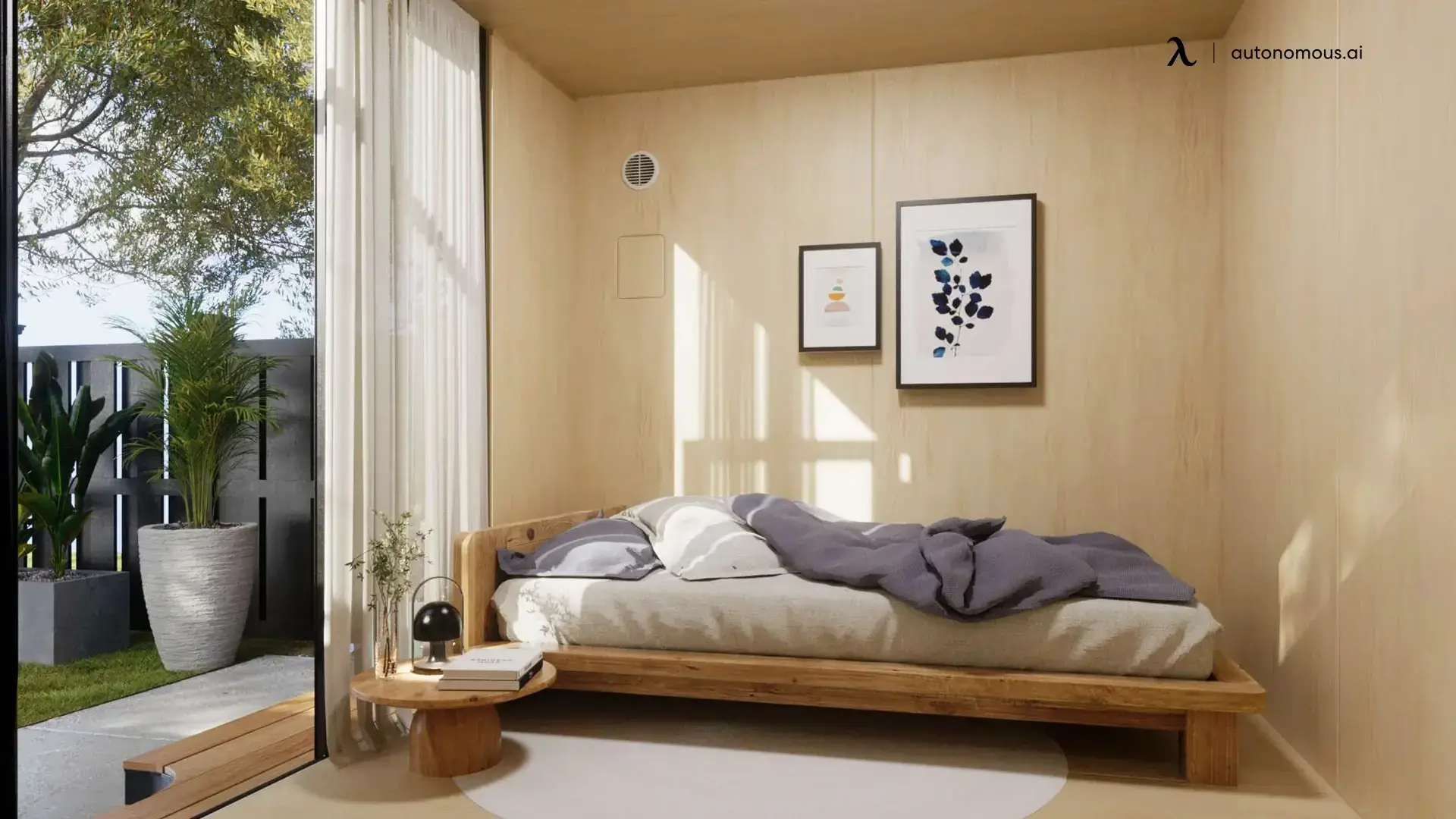
- Those with unique lot challenges
If your property has limited access or tricky layouts, flexible-use units like the WorkPod Versatile (105 sq ft) can still give you extra space for work, hobbies, or guest use, all while fitting into tight or unconventional spots—similar to a tiny backyard office or compact creative shed setup.
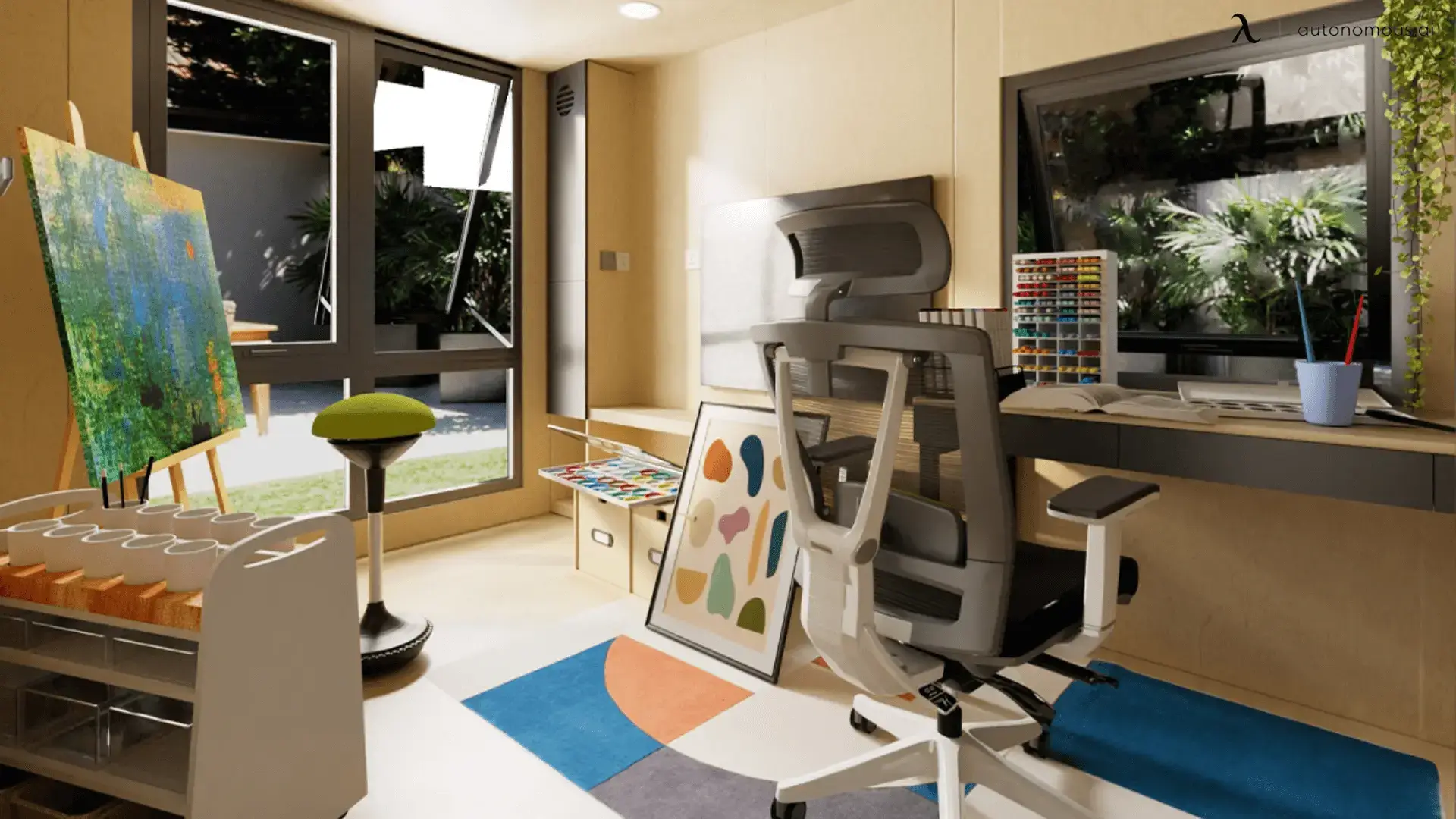
- Rental investors wanting higher-end finishes for better ROI
While our WorkPod and WorkPod Versatile aren’t dwelling units, they can add premium backyard spaces that increase your property’s versatility and appeal for long-term renters or remote workers. Consider how an outdoor office pod or backyard office shed can offer similar benefits with less red tape.
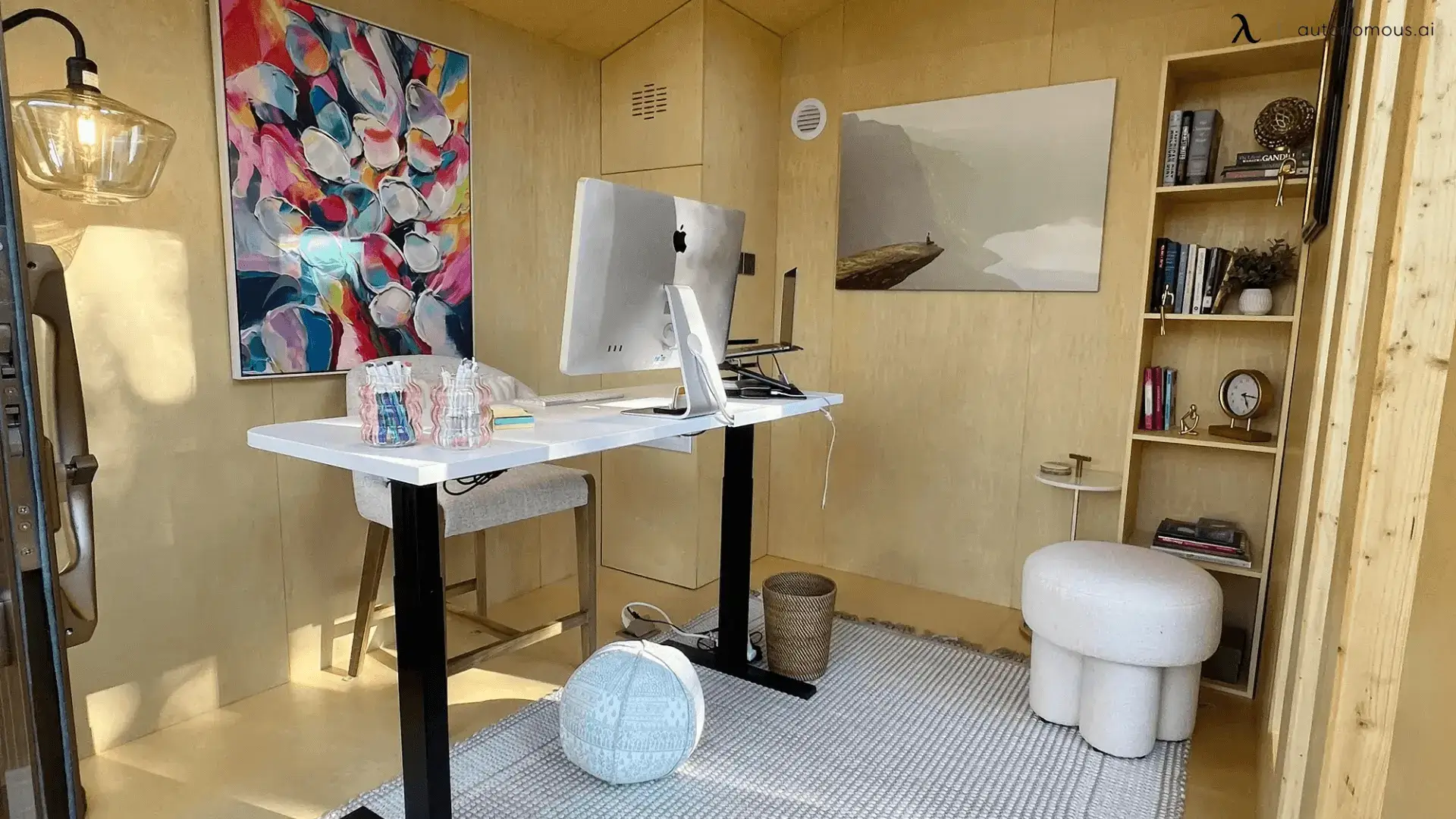
- Families needing flexible spaces (home office, gym, guest suite)
For those who need adaptable space quickly, prefab pods like the WorkPod series can serve as offices, gyms, playrooms, or creative spaces—offering comfort and privacy without the complexity of a full ADU build. They also work well as casual backyard hangouts or even an outdoor man cave for winding down after work.
While not classified as ADUs, our WorkPod collection offers backyard-friendly, prefabricated spaces designed for work, play, and everyday use—making them a perfect complement or alternative to traditional ADU projects.
.webp)
FAQs
What makes a prefab ADU “custom”?
A prefab ADU becomes custom when you can personalize its floor plan, materials, or features beyond the base model. In Texas, this often includes adding outdoor-friendly spaces like shaded patios, upgrading to materials suited for hot and humid climates, or including energy-efficient HVAC systems designed for the Texas heat.
How long does it take to build and install a custom prefab ADU?
Most custom prefab ADUs take 3 to 6 months from design to move-in, depending on city permitting timelines (which vary across Texas), factory schedules, and site conditions. While prefab manufacturing is fast, local inspections, especially in growing metros, may add some time.
Are custom prefab ADUs eligible for financing?
Yes. Many lenders offer ADU-specific financing, such as renovation loans, construction loans, or HELOCs. Some custom ADU builders also partner with financing providers to streamline the process for local homeowners.
Can I rent out a custom prefab ADU legally?
In many cities like Austin, Dallas, and Houston, ADUs can be rented long-term. However, short-term rentals may face additional restrictions or registration requirements, depending on the municipality. Always check with your local zoning office.
Do custom ADUs increase home value?
Absolutely. In Texas’s competitive housing markets, a well-designed, legally permitted custom prefab ADU can significantly raise your property's value and appeal—whether as a rental income opportunity or multi-generational living solution.
Conclusion
A custom prefab ADU offers the best of both worlds: the speed of prefab construction and the flexibility of custom design—all while navigating the unique regulations, climate, and lifestyle needs of the Lone Star State.
By working with experienced custom ADU builders familiar with Texas, you can create a high-quality, personalized space that adds long-term value to your property. Whether you're dreaming of ADU custom homes for rental income in Austin, guest spaces in Houston, or a backyard office in Dallas, the custom prefab route is worth exploring for its balance of speed, customization, and quality.
For families seeking multigenerational living options, a Texas granny pod can also serve as an excellent solution—offering independence and proximity for aging parents or relatives, without sacrificing privacy.
Spread the word
.svg)

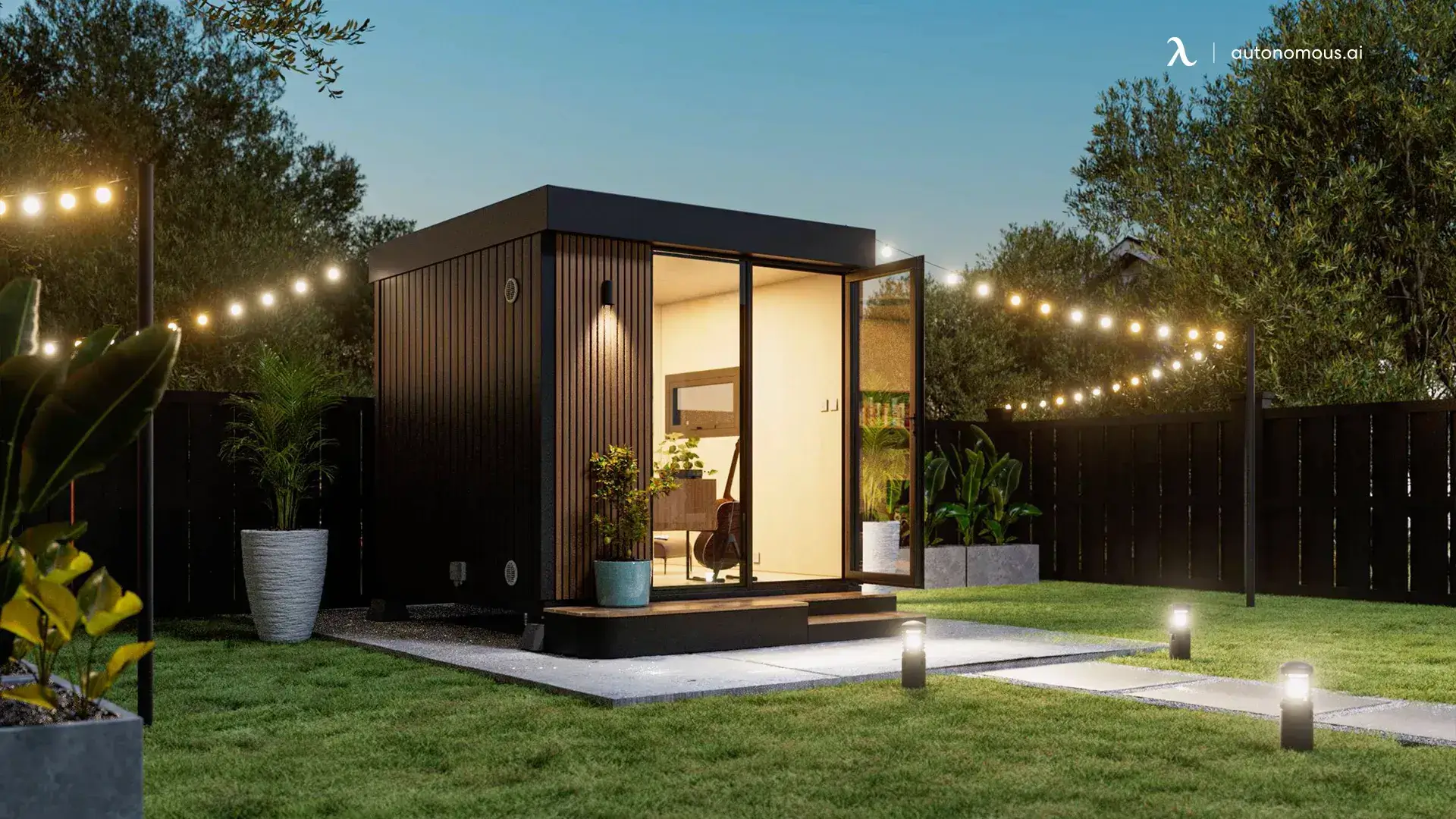

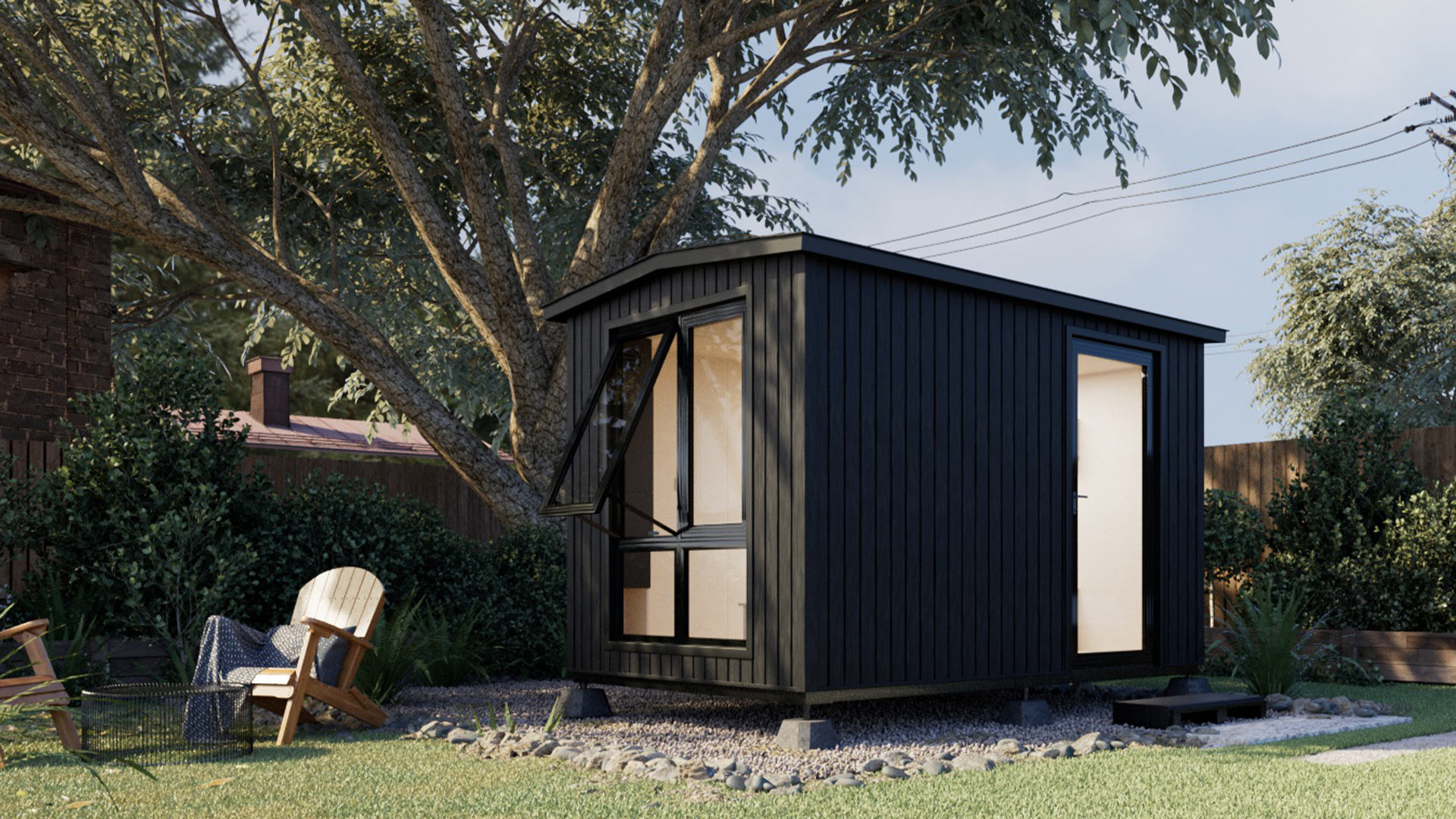
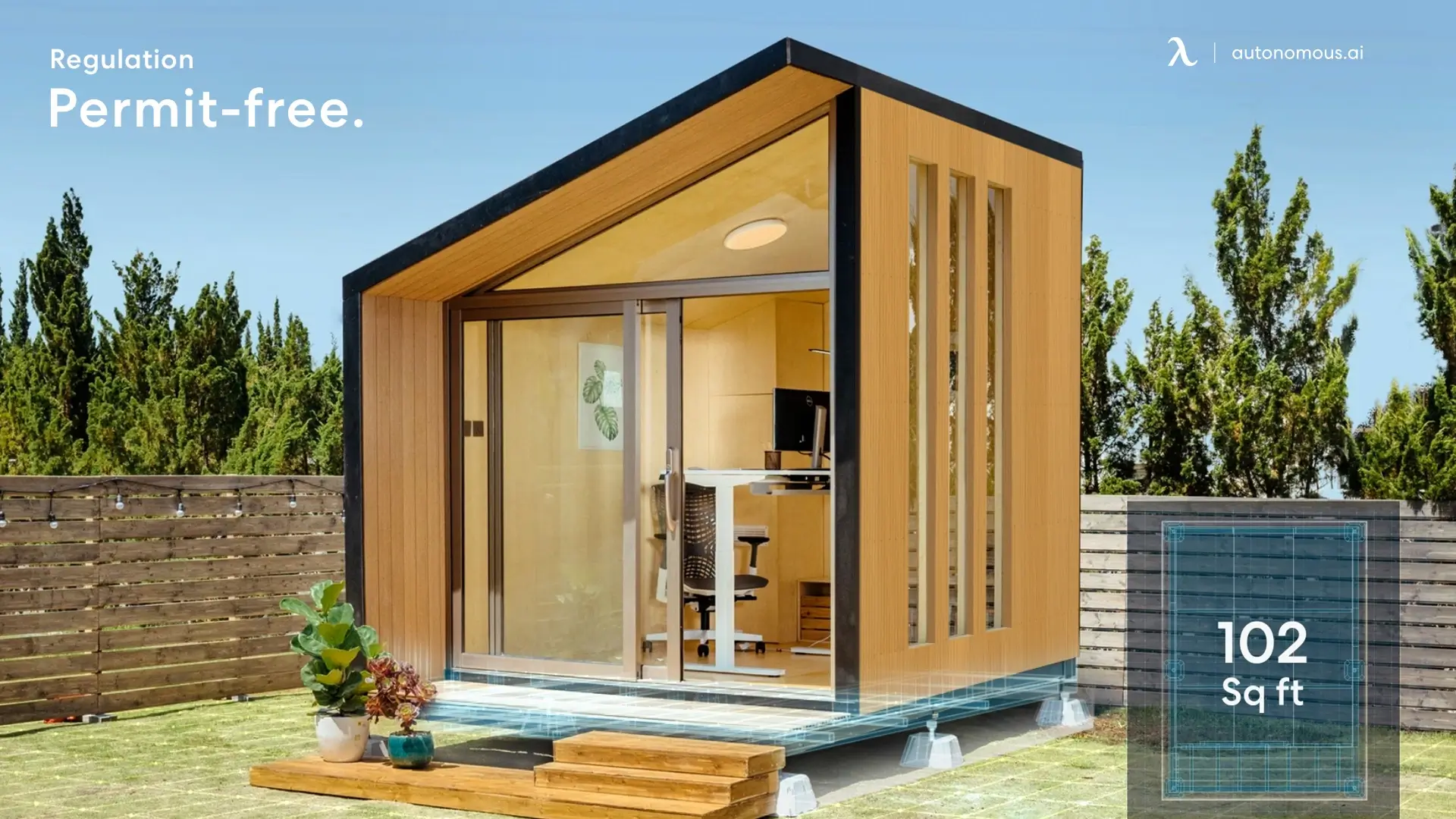
.webp)
.webp)




